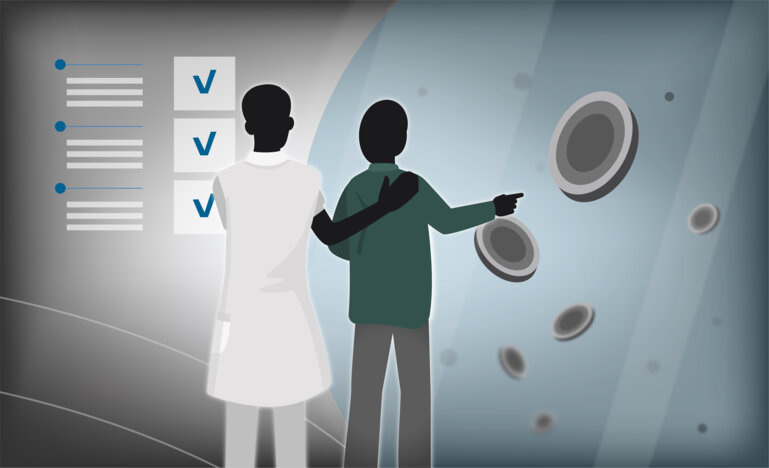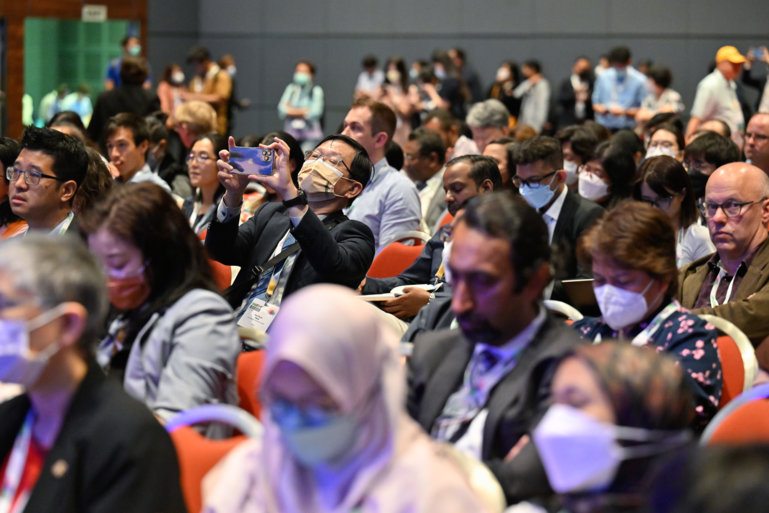Effective NCCPs should help medical oncologists to provide better cancer care, but they cannot work in isolation
The role of medical oncologists is vital to reaching the target set by the World Health Assembly (WHA) of a 25% relative reduction in mortality from non-communicable diseases (NCDs) by 2025. National cancer control plans or programmes (NCCPs) are defined by the World Health Organization (WHO) as public health programmes aiming to reduce cancer incidence and mortality and improve quality of life of cancer patients by implementing evidence-based strategies for cancer care. The implementation of NCCPs may represent the most effective strategy to achieve the WHA target, but not without difficulties.
Who is responsible for putting NCCPs into practice in a country? And how can national plans reflect global recommendations? These are some of the key aspects that will be addressed in today’s Special Session ‘The role of the medical oncologist in health policy: Using national cancer control plans to translate science into better patient care’ (14:00 – 15:30, Salamanca Auditorium [Hall 3])."NCCPs allow countries to translate commitments for cancer into action,” comments Prof. Giuseppe Curigliano from Istituto Europeo di Oncologia (IEO), Milan, Italy, who is Co-Chair of the session. "Developing global recommendations is the first step toward achieving better cancer care.” Implementing these recommendations at a national level is the next step, and this is where medical oncologists come to the fore. "The nature of the medical oncologist’s involvement is flexible, depending on country-specific priorities or needs, be it screening programmes or therapeutic interventions,” he explains. "The medical oncologist is more likely to be engaged when therapeutic interventions rather than screening are the NCCP’s priority; for the latter, input from other specialists, such as radiologists or endoscopists, may be more relevant,” continues Curigliano.
In some countries, says Curigliano, the initial effort may be in health education, to raise awareness of risk factors and to direct resources. "For example, if a country’s lung cancer mortality rates in females are high and there is an explicit goal in national policies to bring the levels in line with global targets, the role of the medical oncologist will involve increasing awareness of cancer risks associated with smoking in this population. And for countries where human papillomavirus (HPV)-related cervical cancer is a priority, the medical oncologist should act to encourage increased HPV vaccination in young women.”
Effective NCCPs should help medical oncologists to provide better cancer care, but they cannot work in isolation. According to Prof. José Martin-Moreno from the University of Valencia, Spain, the other Co-Chair of the session, the benefit of NCCPs is in the utilisation of multi-sectoral teams that can work together to improve engagement, public education and advocacy. He comments, "The value is in bringing together the ministry of health, scientific societies, medical oncologists, other cancer professionals and patient associations in a country to promote cancer prevention and control. Achieving these joint efforts, however, is a challenge.” Global cooperation through collaborations such as the WHO–ESMO partnership is paramount in helping medical oncologists to implement national plans. As noted by Curigliano, "ESMO provides a global community of medical oncologists that can bring the WHO plan for global cancer control to any country, through dissemination of best practices and collaboration.” For countries with limited resources, global engagement with financial assistance may be needed to help NCCPs succeed.






